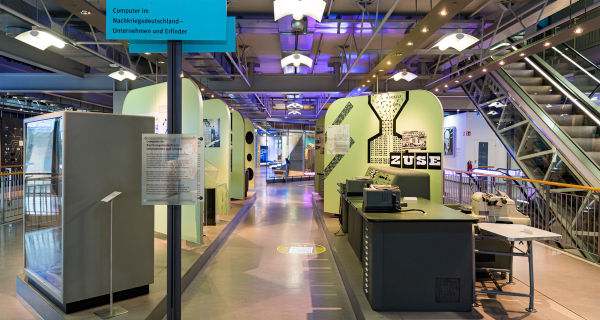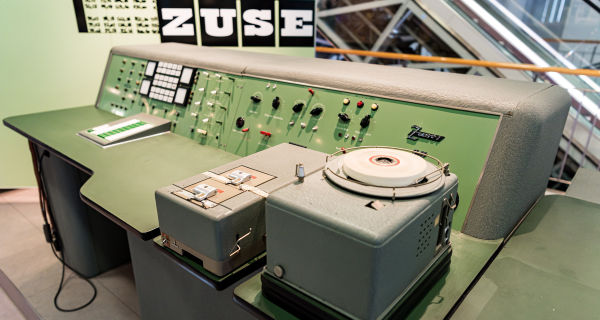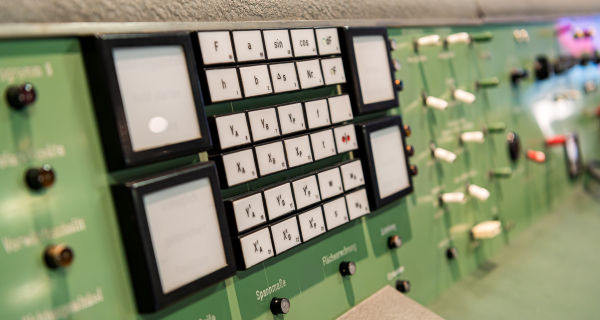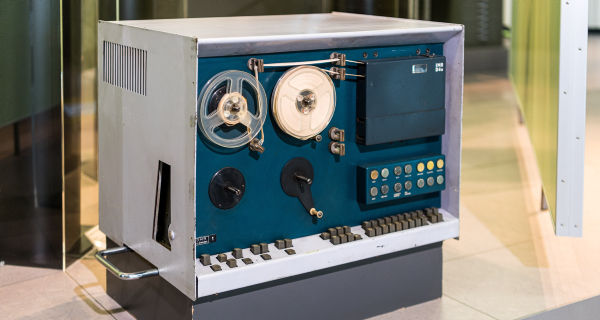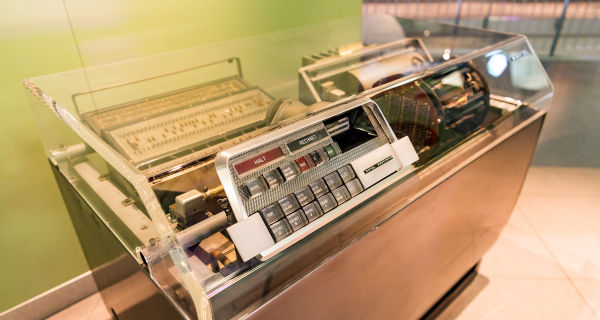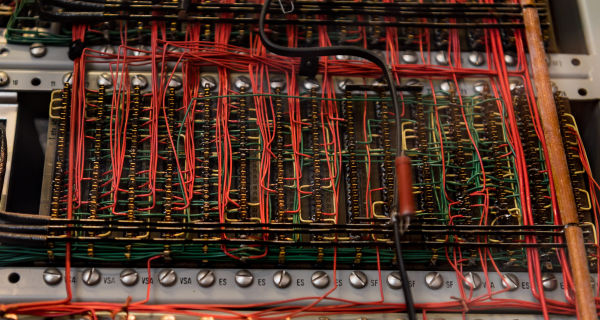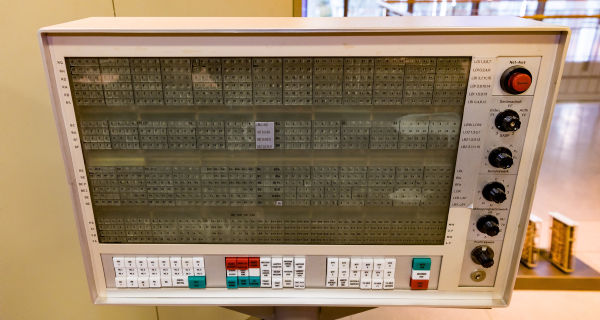Konrad Zuse with ZUSE KG and Heinz Nixdorf with his Labor für Impulstechnik are prominent as the first entrepreneurs in the computer sector in post-war Germany. As early as 1949, Zuse was able to set up a company in Neukirchen from the revenue generated by leasing the ZUSE Z4 to ETH (Swiss Federal Institute of Technology) in Zurich. The company built add-on computer equipment and the ZUSE Z5 before pro-ducing the ZUSE Z11 - its first computer to be manufactured in series.
Top dog IBM
The story of computers in post-war Germany was written mainly by IBM. In 1949, Dehomag was renamed IBM Deutschland GmbH and moved its headquarters from Berlin to Böblingen. Production of the IBM 1401, a highly successful transistor computer, started there in 1958. Competition on the German market in the mid-1950s was considerable. Alongside IBM and UNIVAC, manufacturers from Great Britain, France and the Netherlands offered vacuum-tube computers in all performance classes.
Much impetus for the electrotechnical industry came from German scientists. For instance, members of the PERM development group worked at Siemens, young staff from Alwin Walter's Institute worked at SEL on the ER 56 computer, and Heinz Billing supported Konrad Zuse in designing a powerful drum memory for the Z22 computer.
After the "Zero Hour": A new entrepreneurial spirit rises in East and West
N. Joachim Lehmann at the University of Dresden designed his own small computer, the D4a, and had it built in series at Büromaschinenwerk (office machine works) Cellatron in Zella-Mehlis. Schoppe und Faeser in Minden, a company that had made a name for itself after the war with mechanical differential analyzers, marketed systems based on designs by the American Librascope company. An LGP 30 - a "small" computer featuring a drum memory - can be seen in the exhibition. A ZUSE Z11 and a ZUSE Z23, as well as components of various other computers, are also display.
Computer science: Discovery of a new academic discipline
The spread of computing in German businesses was accompanied by the need for consulting. Back in 1958, Dr. Hans Konrad Schuff, a mathematician, established Mathematischer Beratungs- und Programmierdienst (mbp, Mathematical Consulting and Programming Service) in Dortmund. About ten years later, German universities started to teach computer science, also known as informatics.
